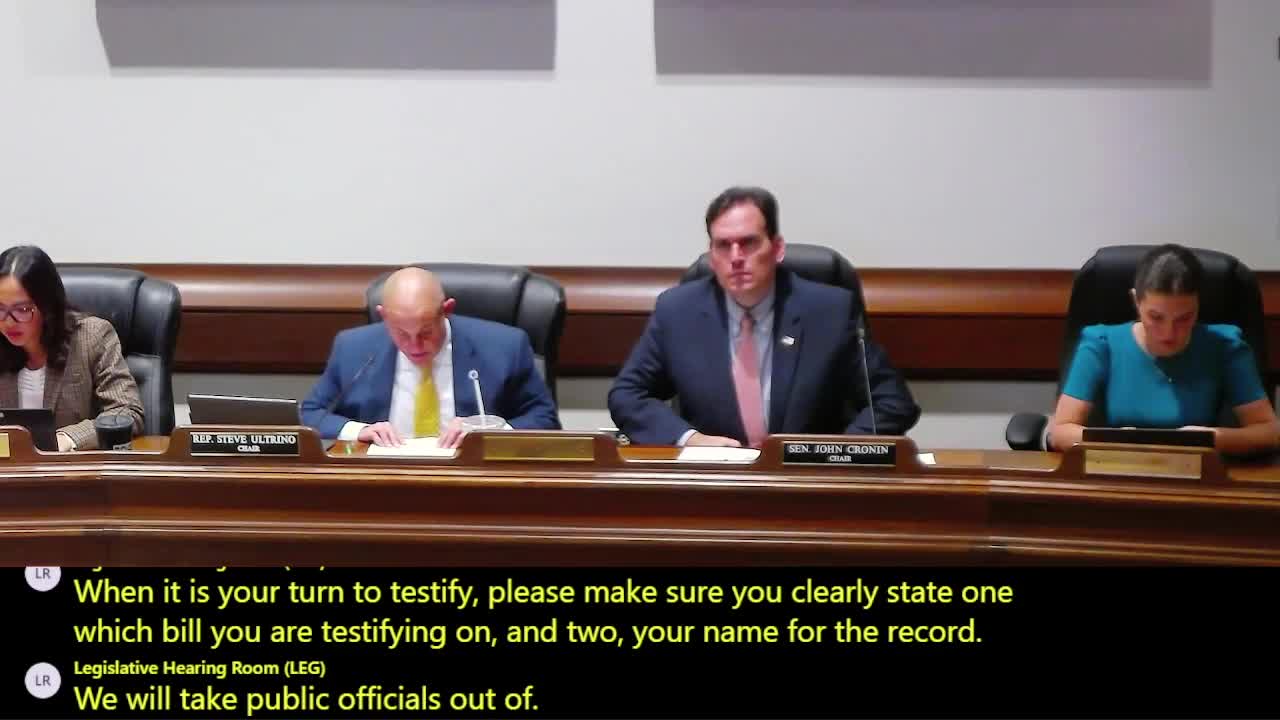Legislative hearing draws wide testimony for and against bill to bar vaccine requirements for entry
Get AI-powered insights, summaries, and transcripts
Subscribe
Summary
Senate Bill S539, which would prohibit requiring COVID‑19 mRNA vaccination or other gene‑altering procedures as a condition of entry to public places, employment or schooling, drew extended testimony at a Joint Committee on Emergency Preparedness and Management hearing.
Senate Bill S539, which would prohibit requiring COVID‑19 mRNA vaccination or other gene‑altering procedures as a condition of entry to public places, employment or schooling, drew extended testimony at a Joint Committee on Emergency Preparedness and Management hearing.
Supporters said the bill is needed to prevent a repeat of what they described as coercive pandemic-era policies. “This bill is about one simple principle … that your private medical decisions are your business, not the government’s,” Senator Peter Durant told the committee when asked to speak in support of S539. Julie Boras of Health Rights MA said the measure would protect people from being “forced to receive mRNA vaccine, or gene altering procedure as a condition of entry” and submitted a book of personal testimonies to lawmakers.
Medical witnesses and health‑care workers who spoke in favor described personal or professional harms they attribute to vaccine mandates. Mary Kelly Sutton, a physician, said medicine and research were “in a deeply troubled state” after the pandemic and urged a pause on mandates until a “full and honest medical debriefing.” Front‑line worker Sharon Chintolo said she lost a part‑time job when an employer denied her exemption and described staffing impacts in health care.
Several witnesses described job loss, education delays, or other social harms. Jackie Fashchin said a family member dropped out of college because of mandates, and multiple speakers recounted colleagues in health care who lost employment for refusing vaccination. Trevor Dillman said his wife died of a pulmonary embolism weeks after receiving a COVID vaccine and urged passage of the bill; he said his wife had been compelled to vaccinate by an employer.
Other testifiers offered critiques of vaccine safety reporting and cited adverse‑event databases. A number of witnesses, including Laurie McLeod and David Cromwell, cited VAERS or other datasets to argue that vaccine harms were widespread; some speakers described alleged data or reporting problems. John Bowden and others raised concerns about death‑record coding in Massachusetts.
Not all testimony favored the bill. Joanne Tuller of Dorchester, testifying in opposition, cautioned committee members that public hearings typically attract more people with complaints and urged legislators to preserve public‑health agencies’ ability to act in future emergencies. Dr. Susan Milliken, a licensed physician, opposed S539 and cited public‑health data she said show low excess mortality in children from COVID.
Committee members asked a mix of technical and process questions but did not vote on the bill at the hearing. No formal action was recorded. The committee also heard related procedural remarks about sign‑up and time limits from the chairs and acknowledged a large number of people who signed up to speak.
The bill remains before the Joint Committee on Emergency Preparedness and Management; supporters urged a favorable report and opponents urged caution about limiting public‑health authority in future emergencies.
